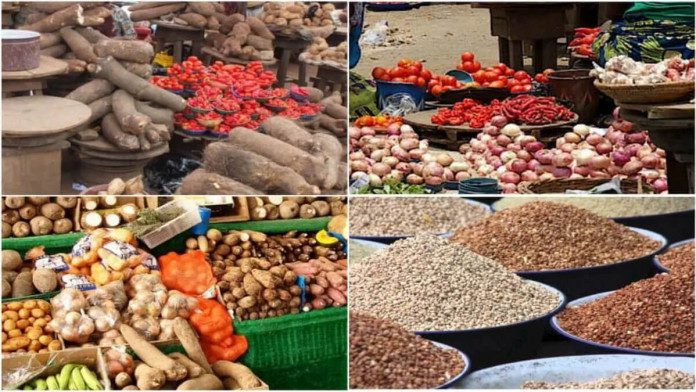News in Brief:
– The Nigeria’s consumer protection agency is investigating the cause of rising food prices in Nigeria, suspecting reasons beyond the explanation of plant disease given by the Agriculture Minister.
– Market visits revealed insecurity and unfair business practices as potential factors, with the agency aiming to address these issues through recommendations to the government.
Nigeria’s Federal Competition and Consumer Protection Commission (FCCPC) is investigating the reasons behind rising food prices in Nigeria.
Head of the commission’s Lagos Office, Suzzy Onwuka, led a team to interact with market associations, traders and consumers at Mile 12 International Perishable Market and Oke-Odo Market, Lagos state.

In the same vein, the FCCPC South-South Zonal Coordinator, Uchegbu Chukwuma, conducted inquiries with market representatives in Rivers State. This is as Nigeria’s Federal Agricultural and Food Security Minister, Senator Abubakar Kyari, recently blamed the hike in price of a particular commodity, tomatoes, on an infestation known as Tomato Ebola or Tomato Leaf Miner.
According to the minister, this has drastically reduced the availability of tomatoes and contributed to rising costs.
Possible causes beyond crop disease
However, some analysts opine that while the minister’s position may be partially true, it does not give a clear and precise picture as to the increased hike in this and other essential food items.
Effectively, the investigation by the FCCPC underscores this fact, as it posits that certain underhand practices by some unscrupulous businessmen, as well as factors like insecurity, and the fallout from the removal of fuel subsidy, with the consequent increase in fares, may actually be the cause of the hike in food prices.
Specifically, the Chairman of the Mile 12 market, Shehu Usman Jibril, told the officials that factors responsible for escalating food prices were not hoarding or price manipulations but insecurity that chased many farmers from their farms to several Internally Displaced Persons (IDPs) camps in several parts of the northern Nigeria.

Consequently, Jibril said that some merchants had turned to international suppliers. He mentioned that they were importing garlic from China, tomato and okra from Benin Republic, tomato from Cameroun, and pepper from Ghana. However, others continue to bring food stuff from north and south Nigeria. As there are no restrictions on access markets, international products compete with local ones.
Meantime, the FCCPC plans to submit a report to the government with recommendations based on their investigation. This report will focus on identifying and addressing practices that harm consumers and hinder fair competition in the market.



